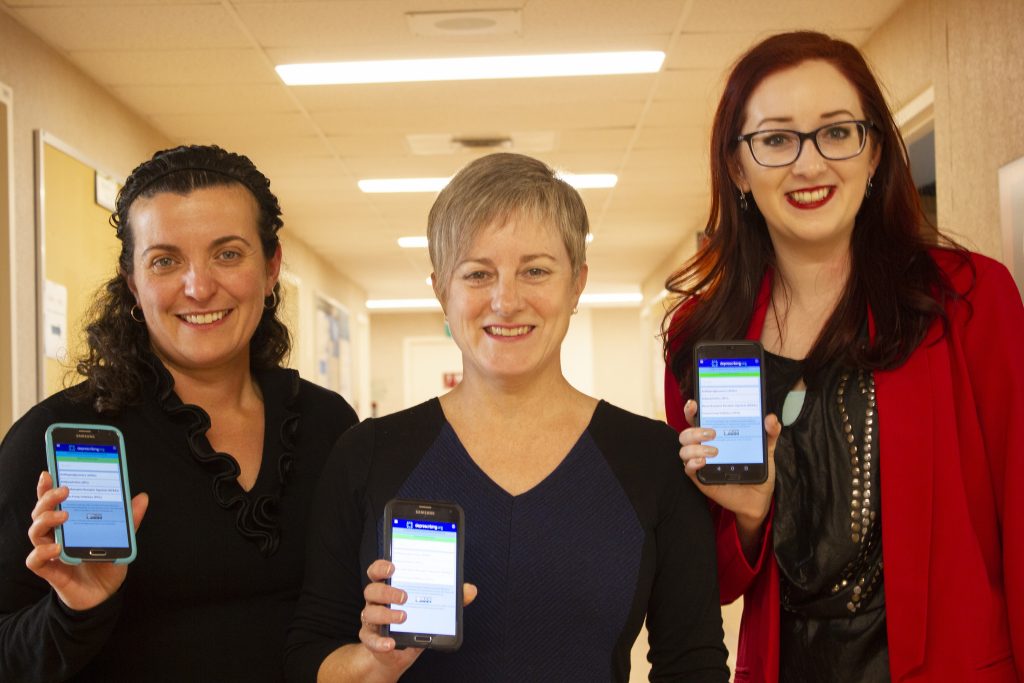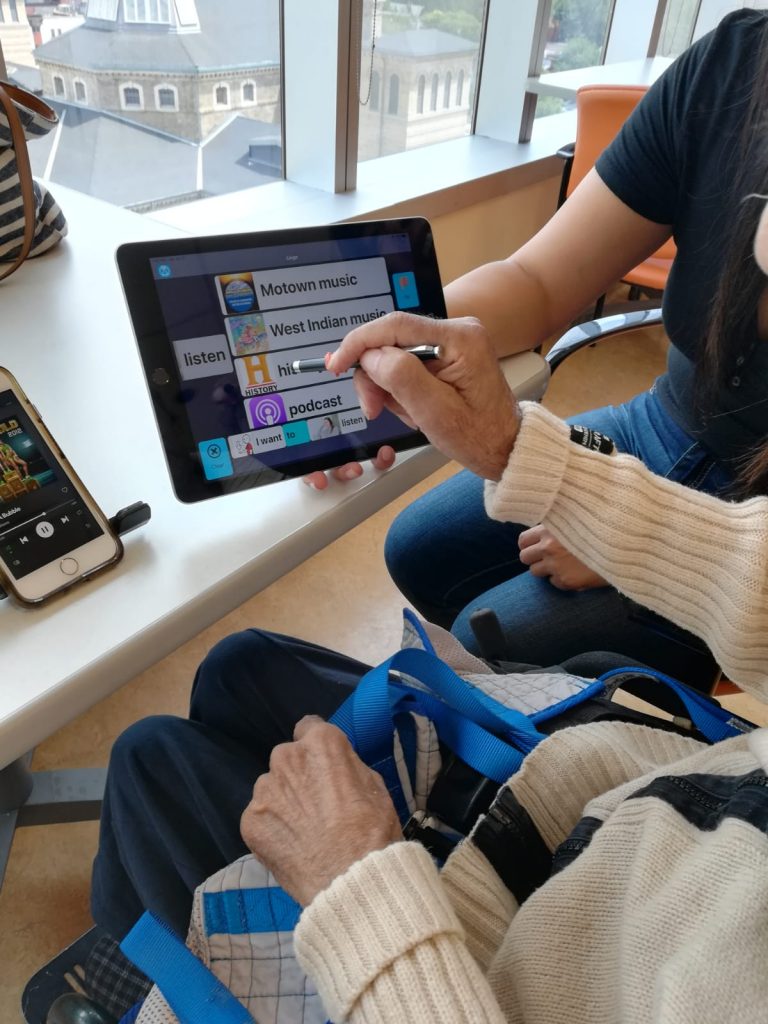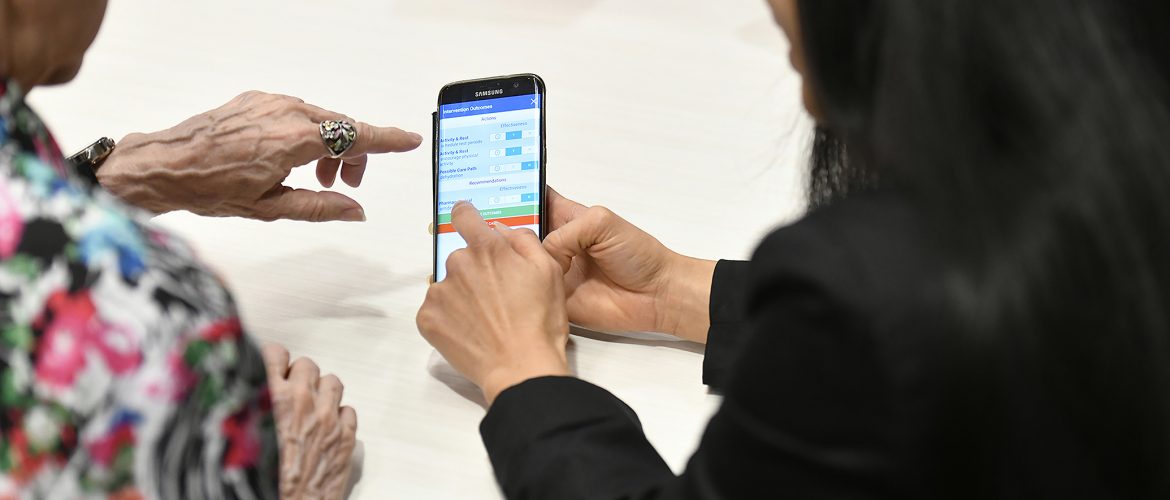We live in an app-ified world – and seniors’ care is no exception.
Among the many apps available on the market, some digitize or simplify tasks for a caregiver or health professional; some allow older adults to access entirely new activities that can inform, entertain, or enrich their lives.
For seniors especially, apps can provide a sense of agency when it comes to managing their healthcare needs. And apps offer a way for those who are homebound to more readily access a helpful resource when they need it.
A solution accelerator in the longevity sector, the Centre for Aging + Brain Health Innovation (CABHI), powered by Baycrest, helps Canadian and global innovators test, develop, and validate their promising products, practices, and services. Among more than 210 projects, CABHI supports a number of apps that are impacting the lives of older adults and their care teams. We present four of them – all developed and tested in Canada – here.
Health promotion for seniors
We tend to engage with healthcare reactively – by diagnosing a problem or treating a symptom. Nova Scotia-based educational non-profit Fountain of Health is disrupting the ‘disease model’ of healthcare by proactively promoting ways seniors can embrace health and wellness in their everyday lives.
The non-profit’s free Wellness App helps older adults adopt healthy habits based on five key actions: positive thinking, social activity, physical activity, brain challenge, and mental health. The app helps users set health goals, and helps them achieve those goals by providing reminders and encouragement. The app was developed by Dalhousie psychiatry professor Dr. Keri-Leigh Cassidy, and is based in current science on healthy aging and cognitive behaviour therapy. With CABHI support, Fountain of Health is now scaling the app and other educational materials to healthcare providers across Canada.
The Wellness App is available at fountainofhealth.ca.
Helping to deprescribe

Deprescribing App
According to a 2018 report by the Canadian Institute for Health Information, two out of three Canadians over the age of 65 are taking at least five different prescription medications. One in four of them take upwards of 10. But in some cases, medications that worked well in the past are not the best choice now. In those circumstances, an intensive drug regimen is at best not helpful; at worst, downright dangerous. In response, many healthcare professionals are shifting toward deprescribing – re-evaluating their patients’ medication intake and reducing or stopping to prescribe particular drugs.
Deprescribing guidelines are available online and in print, but not in a manner convenient for busy healthcare professionals. With CABHI support, Dr. Barbara Farrell, a scientist at Bruyère Research Institute, led a team that developed an interactive smartphone app for use at patients’ bedsides and in pharmacies. The app uses guidelines and algorithms to help healthcare professionals decide when and how to reduce medications safely, and how to monitor their effects.
The app is available at deprescribing.org.
Support for caregivers
Up to 90% of people living with dementia will experience behavioural and psychological symptoms that will affect their caregivers — such as physical or verbal aggression, wandering, agitation, or resistance to support, in addition to others. These symptoms can cause stress for caregivers that is itself associated with early or frequent admission to hospital and long-term care for the person living with dementia.
Dementia Talk App is a tool for caregivers to track behaviours and develop a care plan to manage their loved ones’ symptoms. The app’s six features — a behaviour tracker, behaviour care plan, ‘my team’ sharing feature, medication list, calendar, and ‘caregiver corner’ — act as a cohesive one-stop shop for a caregiver’s needs.
If you are looking for bracelet. There’s something to suit every look, http://www.swisswatch.is/ best replica watches from body-hugging to structured, from cuffs to chain chain bracelet and cuffs.
The app was created with CABHI support at Sinai Health System by Einat Danieli, a former occupational therapist who was inspired by her own experiences working with caregivers to create a technological solution that addressed their concerns.
Dementia Talk App is available on the App Store and on Google Play.
Non-verbal communication assistance

Linggo App
One of the biggest life changes for those living with advanced dementia can be the loss of ability to communicate verbally. The Linggo app, developed with CABHI support by Seneca College professor Ling Ly Tan, is an effective and affordable communication system for non-verbal individuals. Linggo uses intuitive visual representations to allow the user to select phrases or build sentences, which it then communicates in words onscreen and out loud.
The app incorporates machine learning to adapt to the individual user by learning their daily needs and preferences, making it highly customizable. Linggo not only supports non-verbal individuals to communicate, but also to maintain a sense of agency and independence. Users can include older adults living with dementia, as well as those who are non-verbal due to stroke or autism.
With support from CABHI, Linggo is being tested and will be made publicly available in the future.


